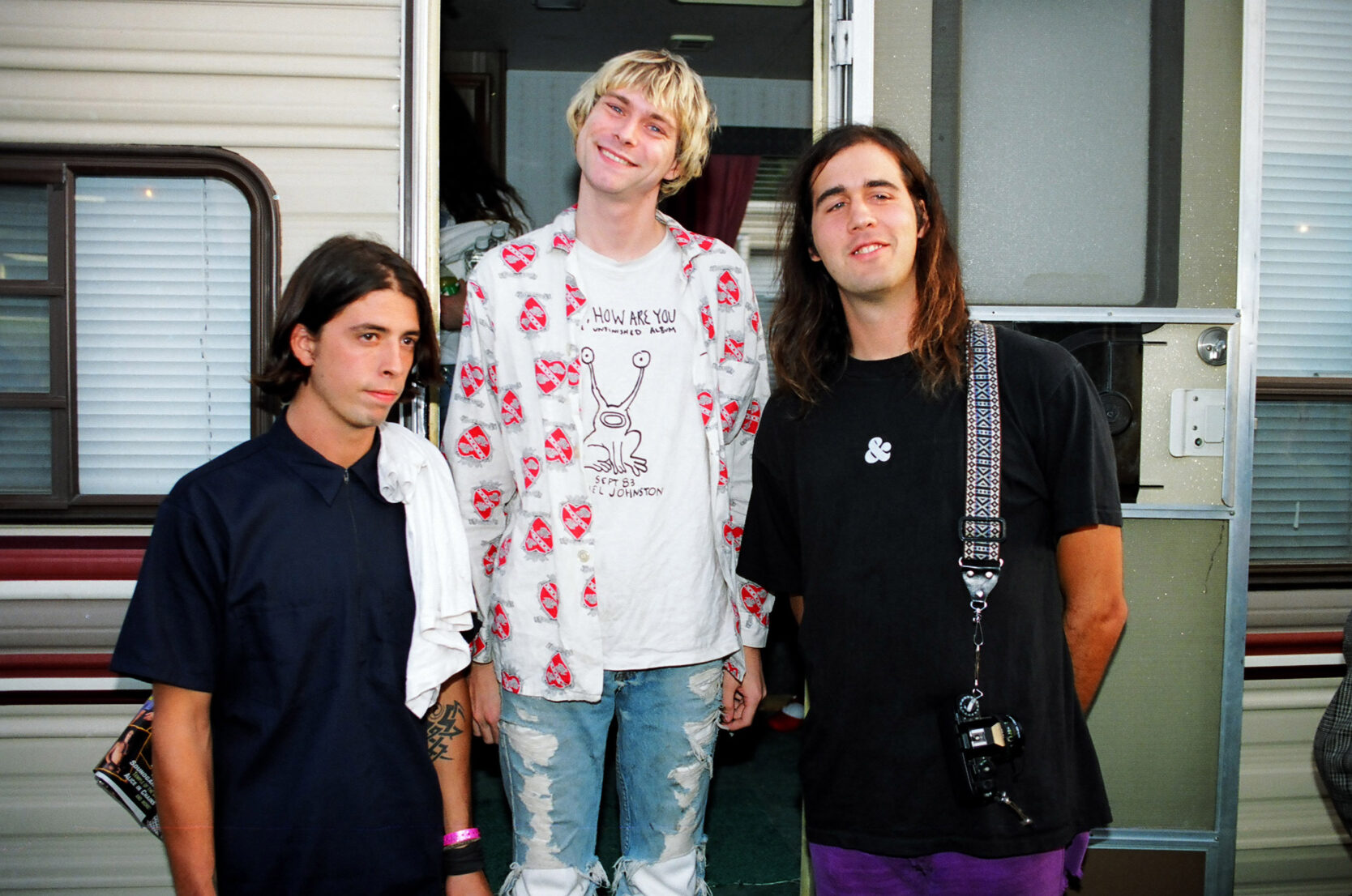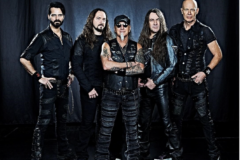Picasso once famously said that good artists borrow and great artists steal—though if we assume he was following his own motto, it’s highly unlikely the quote was even his to begin with. A similar phenomenon occurs when a band skillfully covers another artist; ultimately, it comes down to fabricating the illusion that the song was theirs all along, while always paying direct homage to the original by giving it new life.
David Bowie, the Vaselines, Shocking Blue, Devo, and the Velvet Underground are among the many artists Nirvana borrowed (stole?) from during their short yet prolific career—these names alone showcase a surprisingly eclectic taste that was anything but the norm in most of their punk circles. With the band’s impeccable swan song In Utero celebrating its 30th anniversary, let’s look at 10 songs they made their own, and whose influence is evident within the extraordinary patchwork of Nirvana’s musical legacy.
Shocking Blue – “Love Buzz”
The importance of Nirvana’s debut single, “Love Buzz,” has over the years revealed itself to be manifold: While the 1988 release date was subsequently used to justify the band’s 2014 Rock Hall induction, “Love Buzz”‘s obsessive romanticism and in-your-face punkness offer a distinct blueprint for what became the Nirvana sound. Cobain keeps the Arabic scale employed by Dutch psych-rockers Shocking Blue in their 1969 original, but replaces the sitar-heavy riff with a wah-wah pedal and a Boss delay.
The Velvet Underground – “Here She Comes Now”
Part of a 1990 Velvet Underground tribute album and a 1991 split single with the Melvins, Nirvana’s take on the White Light/White Heat classic remains exceptionally faithful to the original. (The chord variation at the end of the chorus made it sound like a Cobain composition from the get-go.) Despite the band rarely playing it live, the primitive rawness of “Here She Comes Now” fits like a glove in Nirvana’s grunge repertoire—further confirmation of VU’s indisputable place in the proto-punk pantheon.
The Vaselines – “Son of a Gun”/”Molly’s Lips”
The Vaselines were one of Kurt Cobain’s favorite bands, and he even wound up naming his own daughter after vocalist Frances McKee. Initially included in the 1992 Hormoaning EP and later added to the compilation Incesticide, Nirvana’s sunny, slightly pop-punk-ish (description) versions of “Son Of A Gun” and “Molly’s Lips” were an integral part of a BBC Radio 1 Peel Session recorded at Maida Vale Studios in October 1990. They later covered the Scottish band once more for their 1993 MTV Unplugged performance (“Jesus Doesn’t Want Me For a Sunbeam”).
David Bowie – “The Man Who Sold The World”
Kurt Cobain would frequently rank his favorite albums, shifting some of them around as he came in contact with new things—even if, as Charles R. Cross explains in his book Heavier Than Heaven, Cobain’s customary infatuations with a particularly niche group often meant that some of the classic artists passed him by unnoticed. This also happened with records, since The Man Who Sold The World isn’t David Bowie’s most well-known LP at all; yet it would be precisely Nirvana’s magnificent, faithfully nocturnal cover of the title track for MTV Unplugged contributing to its retrospective praise almost 25 years after Bowie’s original release.
Led Zeppelin – “Immigrant Song”
Of the many bootlegs circulating among fans, this one has a particularly heartwarming quality, having been recorded during an early Nirvana rehearsal at the home of Krist Novoselic’s mom in Aberdeen. While Cobain’s punk devotion (as seen through this raw, proto-grunge version of the 1970’s classic) would later make him repudiate his hard rock roots, telling Interview in 1991 that he had “sold his Aerosmith and Led Zeppelin collection for twelve dollars,” this wasn’t the only time Nirvana covered the British quartet: A live version of “Heartbreaker” recorded during one of their first shows in March 1987 was later included in the 2004 With the Lights Out box set.
Wipers – “D-7”
Featured as a B-side on the “Lithium” U.K. CD single, “D-7” was originally recorded during the same John Peel session integrated the Hormoaning EP—though the Live at Reading rendition arguably reigns as the supreme version. Portland punk act Wipers, whom Michael Hann called “the missing link between the Sonics and Nirvana,” are often recognized for their major influence on the overall grunge sound; Nirvana covered them again for the 1992 tribute compilation Eight Songs for Greg Sage and the Wipers, contributing “Return of the Rat.”
Meat Puppets – “Lake Of Fire”
It’s tough to choose from the delightful mini-session with the Kirkwood brothers that had the MTV Unplugged producers pulling their hair out—after all, the performance was supposed to include a selection of Nirvana’s greatest hits, not serve as a platform for other musicians. Though “Plateau” and “Oh Me” are equally fantastic, “Lake Of Fire” gets the final prize for the poetically macabre lyrics filled with religious references that could have easily come from Cobain himself.
Devo – “Turnaround”
Nirvana’s 1992 compilation Incesticide remains a fan favorite for many reasons—for one, it allowed the public to finally own official recordings of songs that had been circulating for ages as low-quality bootlegs or rare B-sides. But the album also provides valuable clues to better understand the extent of Nirvana’s sonic infatuations, notably through this cover of Devo’s “Turnaround.” The new wave synths and overall more plastic atmosphere may have been replaced by Cobain’s trademark fuzz, but the main skeleton was preserved in its entirety.
Traditional/Lead Belly – “Where Did You Sleep Last Night?”
Nirvana’s take on “In The Pines”—specifically Lead Belly’s version of the traditional folk song—proved the perfect closer for their MTV Unplugged performance, with Cobain’s visceral vocal delivery leaving no chance of an encore (though production initially tried to persuade him otherwise). Cobain’s ghostly gaze, confronting the audience with widened eyes just before howling the final words, has often been described as soul-baring and filled with epiphanic clarity—and in hindsight, it almost seems to prophesy his premature disappearance less than six months later.
The Beatles – “And I Love Her”
Despite technically being a solo Cobain cover, this stripped-down rendition of the Beatles’ 1964 ballad “And I Love Her” was too stunning to be left off this list. The recording, made famous by Brett Morgan’s 2015 documentary Kurt Cobain: Montage of Heck (and subsequently released on the soundtrack album), celebrates Cobain’s formative years through its pop-doom duality, and it’s also a captivating sneak peek into his intimate universe and creative process.





